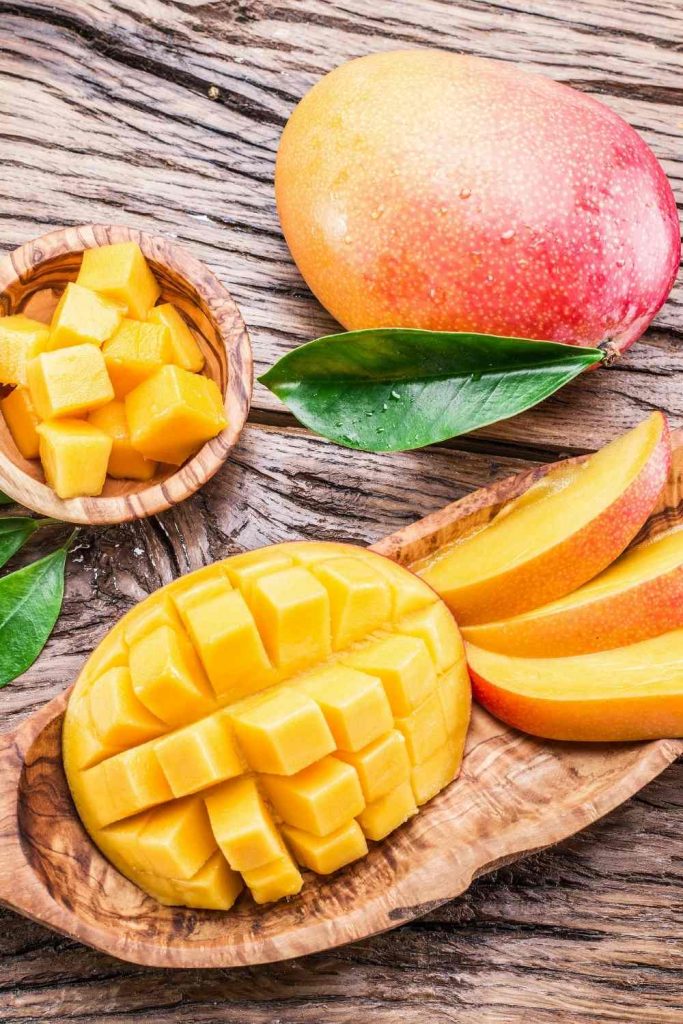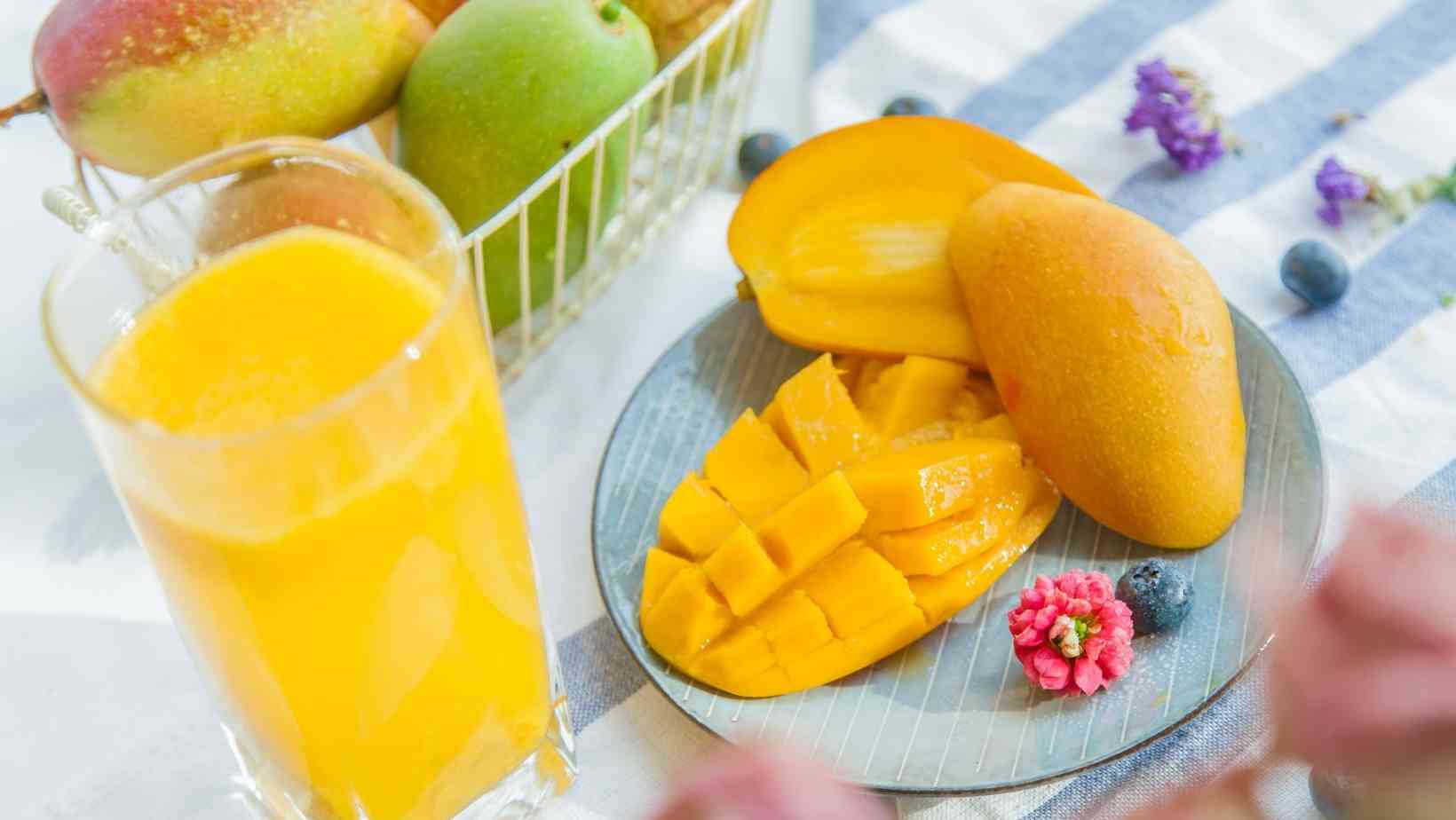Besides being tasty and refreshing, this tropical fruit is also packed with nutritional value. Like other fruits, it is low in calories and high in fibre. Continue reading to find out why mangoes are so excellent for you and if fresh or dried mangoes are preferable.

What exactly is mango?
Tropical stone fruits, mangoes are plump and oval in form and roughly the size of a grapefruit. They are grown in tropical climates. They feature an inedible exterior that varies in colour from yellow to green to red-green depending on the type, while the interior contains a soft, edible yellow meat as well as a hard, inedible stone that is not edible.
Mangoes can only be grown in tropical climates. They are originally from Southern Asia, but they are currently cultivated in a number of nations throughout the world, including the United States, Mexico, and the Caribbean.
There are various types available, including Kent and Keitt, which are regularly found in stores around the United Kingdom.
Mango has a number of nutritional advantages
An excellent source of vitamins A and C, mangoes are a low-calorie fruit that is rich in fibre and low in calories. It also includes folate, vitamin B6, iron, and traces of calcium, zinc, and vitamin E in small amounts. A strong source of antioxidants, mangoes include particular phytochemicals, such as gallotannins and mangiferin, that have been researched for their potential health-promoting properties.
Just 80g of mango (2 x 2-inch slices) qualifies as one of your five-a-day servings of fruits and vegetables. This single serving has 53 calories, 11 grammes of naturally occurring sugar, and little more than 2 grammes of fibre.
Is it true that mangoes are excellent for digestion?
A pilot study conducted in 2018 in which people suffering from chronic constipation were each given a mango over a 4-week period found that those who ate mango experienced a significant improvement in their constipation symptoms, possibly due to the fibre content of the fruit but also due to other mango-specific compounds. Interesting to note, the mango tree's leaves have been researched and have been shown to have antidiarrheal action due to the presence of plant extracts in them.
Previous research published in the Journal of Nutrition discovered that rats with high-fat, diet-induced obesity had better gut microbiota after consuming mango as part of their regular diet. This was partly owing to the high fibre content of mangoes, as previously stated.
The skin of the fruit contains a significant amount of phytochemicals, and this is true for mango as well. A 2012 research examined the peel of mangoes and came to the conclusion that they may be beneficial in the prevention of obesity.

The phytochemicals found in mangoes have also been studied for their gastroprotective properties, as they have been shown to have anti-inflammatory and antioxidant properties that are beneficial to the digestive system. They may even be able to help reduce inflammation in conditions such as ulcerative colitis.
Cod with cucumber, mango, and tomato salad is a delicious combination.
Can mangoes assist in the maintenance of good skin and hair?
Mangoes are high in vitamin A and C, and they are also high in fibre.
When it comes to the synthesis of collagen, which is the protein that gives the skin its flexibility, vitamin C plays an important role. In addition to being one of the most essential antioxidants, vitamin C also plays a preventive function against environmental damage. A vitamin C shortage may impair wound healing and cause fine lines and wrinkles to seem more prominent. Vitamin C is also required by our hair, both for the creation of collagen and to aid in the absorption of iron, which is a vital element for hair development.
Vitamin A is required for the development of all cells, including those of the skin and hair — and some research suggests that it may have potential anti-ageing benefits on the skin and hair, among other things. One of the most important functions played by vitamin A in the maintenance of healthy hair and skin is its participation in the creation of sebum, the oily substance that moisturises both our skin and scalp.
Is it true that mangoes are excellent for your heart?
Animal research conducted in 2016 revealed that mangiferin, one of the phytonutrients found in mango, has heart-protective properties, including the ability to decrease inflammation.
Eating a well-balanced and diverse diet that includes five servings of vegetables and fruit, such as mango, may assist to maintain a healthy cardiovascular system.
Is dried mango just as nutritious as fresh mango in terms of nutrition?
Fresh mango is a convenient alternative to dried mango, but the dried version has a significant amount of added sugar as well as a significant amount of calories, with more than 300 calories per portion (compared to 53 calories in 80g of fresh mango) and more than four times the amount of sugar, with 63 grammes of sugar per portion. Despite the fact that dried mango has a high amount of fibre (12g per serving), it is still recommended that you control your portion size and use fresh mango whenever feasible.
Mangoes should be ripened and stored properly.
In order to avoid putting unripe fruits in the refrigerator until they are fully mature, just leave them at room temperature for a few days or store them in a paper bag to speed up the process. Refrigerate them for up to five days after they are harvested when they are ripe. Simply gently squeeze the fruit to determine whether or not it is ripe; it should feel soft and you should be able to detect a delicious perfume emanating from the fruit's stem end.




